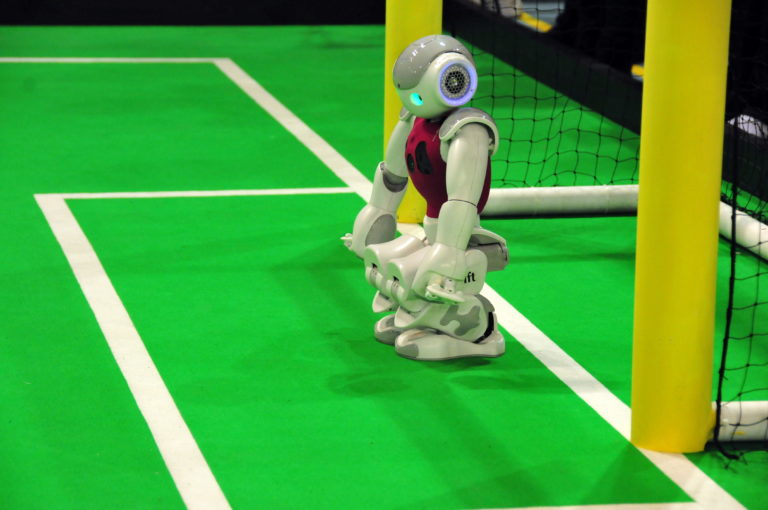
This article was originally published on the Times of Malta and appeared in the Sunday Times of Malta on 10 March, 2019. The article is being reproduced as it appeared originally.
One out of every two people watched part of the FIFA World Cup last year. Yet in spite of the sport’s popularity, there is no robot that could sit next to you on a weekend afternoon, sip on a cold beer, and contemplate your team’s woes and successes.
When you sit down in front of a television to watch a football match, you understand what you are watching, but there are many nuances that we take for granted. What would it take for a machine to do the same thing?
It takes an understanding of who influences a football match for humans to follow it closely, but unlike machines, we had years to learn about the players. Automated systems need to form a similar idea of a football match, but they have no eyes with which to observe.
In ongoing research in the Department of AI at the University of Malta, machines follow matches through the public discussions of Twitter. We show how machines can use Twitter users’ narration to figure out who is playing even before the match starts. One way how this information can be applied is to collect more tweets during the match, which leads to the second major challenge.
Humans can recognise a goal, a foul or a substitution simply by observing. However, to exhibit the same intelligence that humans have, a machine needs to read tens of thousands of tweets and isolate the salient moments. Therefore, in our research we reduce the problem of tracking matches into two.
Firstly, machines need to understand who drives a football match – the players. Secondly, they need to discern between the important and trivial moments – find the tweets and the keywords within to explain what is happening.
Why stop at football matches? By understanding events, machines can go beyond writing sports timelines; they could even observe and report from emergency situations, like earthquakes, to aid relief efforts.
Machines may be unable to share our passion for the beautiful game, but they can share our understanding. That comprehension could be the key for AI to follow football like we do. Who knows? Maybe in time, machines will even be able to weigh in on the Messi-Ronaldo quarrels.
Nicholas Mamo is a research support officer at the Centre for Molecular Medicine and Biobanking, and a postgraduate student in the Department of AI at the University of Malta.
The research work described in this article is partially funded by the Endeavour Scholarship Scheme (Malta). The scholarships are part-financed by the European Union – European Social Fund (ESF) – Operational Programme II – Cohesion Policy 2014-2020 ‘Investing in human capital to create more opportunities and promote the well-being of society’.